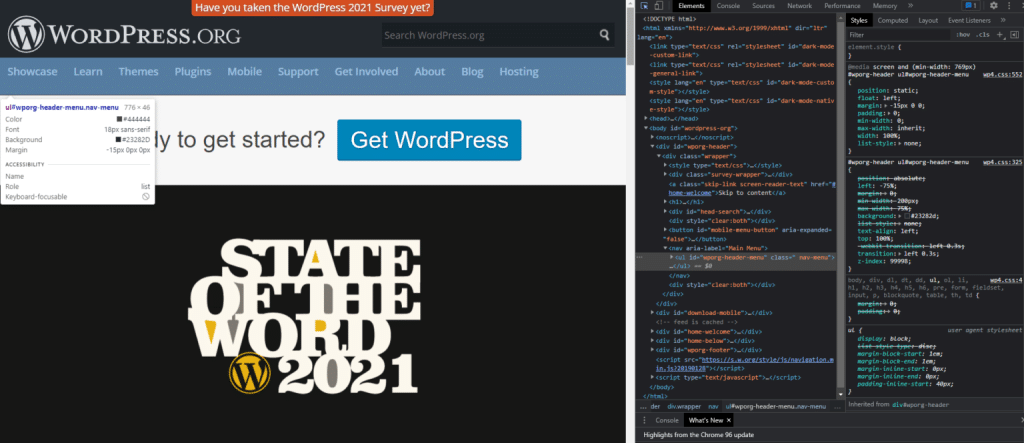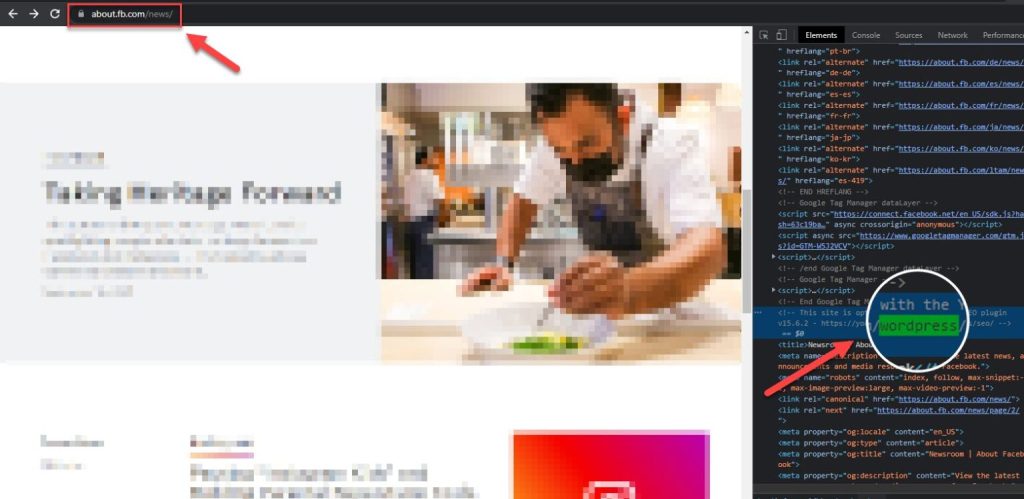Building Your Website..?
Check the Effectiveness of Content Management System (CMS) !
Have you ever thought about creating your own website and then thought what the best way is? Is it relying on special programming, a developer, or use a ready-made content management system to manage your website yourself without the need for programming experience?
In this article, we are going to address one of the best ways that lots of website owners use to create and design their websites using content management systems specially designed to save the time and effort consumed in programming from scratch.
What is a Content Management System (CMS)?
A content management system is one of the effective means of creating and managing websites through pre-designed tools by professional developers to provide full features that meet the needs of website owners in terms of customizing their websites without writing code.
We dare say that CMS is specially created for non-technical users looking for the best solutions that help them design and manage their websites through an easy control panel at an affordable cost. Here pops up the Content Management System (AKA CMS) to help them achieve this by means of developers supporting those systems and updating them periodically to provide the best programming practices.
You can add, edit and modify the dynamic content of your website through the content management system, as well as control the components and characteristics of your site without having to write one single line of code.
How the content management system works
First, we have to admit that the Internet only understands code, so in order to design a simple page that contains (title + text + image); you must write a code that asks the server to display this page to visitors when they request your website through their browser.
For example, imagine that the following is the code needed to just display the Navigation Bar in the website shown below.

Not to mention the rest of the codes that you need to browse the rest of the content pages of the website.
Things will be very complicated for the average user who will have to enlist the help of one or more programmers to create a simple website. It will also become cumbersome for programmers since they’ll need to write code for every new feature they need for the website which must be reviewed continuously for each necessary new task or small modification.
On the other hand, through the content management system, you can edit the navigation bar in a few minutes via a simple control panel in which you arrange the specific tabs that appear to visitors and the pages they can access and format them as required without having to write any code.
The difference between programming from scratch and using content management systems is similar to the difference between Windows OS in which you use the system and the programs in it through an easy toolbar, as opposed to some Linux distributions that require you to write a command to carry out any simple task in the system.
By the same logic, content management systems come equipped with plugins and ready-made templates that enable users to perform the required tasks without the need to write any programming commands, through two main sections:
– Content management application, AKA CMA, which is the front-end that appears to the user and through which they can control the website settings through the system control panel and the toolbars that help them carry out the required tasks with a few clicks.
– Content delivery application, AKA CDA, which is the back-end that does not appear to the website owner, as it receives the required commands from the CMA and stores them in databases and website files until they are displayed to visitors as required.
In this simple way, the content management system works through CMA and CDA to organize the commands required from the website owner and then executes them in the background and displays them to visitors as appropriate.
Note: Contrary to popular belief, the idea of content management systems and their taking over of many websites does not mean programmers will go extinct. These systems are basically designed by professional programmers who constantly modify and develop them, but the picture will be clearer for you in the rest of the article.
Do you rely on content management systems? (CMS Pros)
If you are still thinking about how appropriate content systems are for you, let us show you some of the advantages that you stand to gain from using a CMS, whether you are a project manager, a business owner or seeking to build any type of website. How useful content management systems are in launching your next website?
1- No programming experience required
The first advantage in using content management systems is ease of use for non-specialists, as they provide you with a graphical user interface (GUI) through which you can manage the website completely. These systems have been customized in the first place to serve this purpose.
In most cases, adding and editing content is done through a drag-and-drop process, as well as controlling the system’s built-in tools and additional extensions (Add-ons) via a user-friendly control panel without the need to write code.
We can say that the ease of the system will help project managers distribute tasks among the team, so anyone who has a role assigned to them on the website will be able to obtain the appropriate permission for their role and perform their role effectively without the need to learn some advanced skills.
2- Saving time and money
Even if you have a professional team of developers who are capable of creating any type of website, do you know how much time it takes to create dynamic websites and how much a professional programmer charge for every hour spent on writing code?
If you can save a lot of time and effort by using a preconfigured content management system that contains the tools that meet the needs of website owners, it will increase the productivity of the team.
Many big companies have huge teams of developers and yet they rely on the WordPress platform for this reason, as in this example from Facebook news blog.

In Dirayaah, we also have a qualified team of front-end and back-end developers. However we offer some clients who prefer to have affordable and effective software solutions building their websites using WordPress.
3- Ready-made templates and add-ons
Content management systems provide many pre-designed templates that help you control the look and feel of your website properly, as well as many add-ons that help you add and modify website properties. Depending on the popularity of the system, developers compete to provide best practices in themes and add-ons offered to increase their customer base.
For example, WordPress has more than 54,000 add-ons and more than 30,000 templates inside and outside the official store, some of which are free and others are paid, giving you a wide variety of options that suit your website’s needs.
These CMS plugins help you customize your website better and make it easier to navigate between one template and another and an add-on and another, This is opposed to depending on customized programming where if you asked for amending or adding any other features, you’ll find yourself bound by the options available to the development team according to the website programming framework.
The built-in tools also help optimize your website for search engines easily. This is achieved through the structure of the system itself and its friendliness to search engines and the presence of additional tools that facilitate performing technical SEO tasks such as: creating a website map, building permalinks and creating metadata for the search engine, which are necessary tasks for any website owner.
4- Ongoing support
The more popular the system, the more support it gets from developers and companies operating behind the system, especially if the system environment is open source. Technical support includes continuous update and development of the system to ensure solving problems, fixing errors, filling gaps, providing knowledge guides and making the system easier for users, ensuring the protection of the website and facilitating its management in the best way possible.
You will get technical support in more than one form: from the service provider itself, through the hosting company, or through professional independent developers. Or even when you assign some people to your team, you will be able to easily make modifications and improve your website with the help of several people who depend on the system core component and the framework used.
You will find a lot of content management systems available on the Internet, including WordPress, Joomla, Drupal, Big Commerce, and Shopify .. etc., where the efficiency of these standards increases and decreases for some. You can confirm these standards in the system on which you’ll be relying and decide whether the system is right for you..
For example: If you decide to rely on the WordPress, check how popular the system is, how easy to use it is, the features it provides to website owners, user experiences with it, its add-ons, templates, system support and updates, its tools, and other elements that help you determine the optimal fit for you.
In the next paragraph, we will talk about the most famous content management systems that you can rely on to launch a website.
The most popular content management systems
1- WordPress
One of the most popular content management systems on the Internet, with millions of website owners. Powering 42% of the Internet, WordPress comes as an open source system through which you can create all kinds of websites; thanks to its control panel, component editor and thousands of free templates and add-ons that help you fully customize your website.
You can use the system easily by downloading it from the official website, installing it on your website hosting, and then fully managing the publishing process through the system and its tools.
2- Joomla
Joomla is also an open source system that can be installed on hosting websites easily. It comes with lots of built-in functions that help content owners customize their websites such as multilingual support as well as advanced features for programmers that enable them to manage the website effectively and distribute tasks among team members.
3- Drupal
Drupal is a content management system that is popular for websites of large organizations due to its flexibility in dealing with large data and huge numbers of visits. It shows you many additional modules available that you can use to customize your website, but it takes some programming skills to use it.
4- Sitecore XP
Sitecore provides a content management system (Sitecore Experience Platform™) that helps website owners enhance the experience of managing and personalizing content for their business. The system collects and analyzes customer data, provides marketing automation tools, builds multilingual sites, in addition to other built-in features.
The system, which is purchasable, is based on Microsoft .NET technology. Sitecore XP is suitable for large-size companies and organizations due to its stability and scalability. It provides built-in protection tools that secures the databases for the website owner.
NOTES:
- There are other content management systems that we haven’t addressed. But we only cited the previous samples as examples.
- There are some companies that develop their own CMS with the aim of using it for customer websites rather than selling it and to be more customized to the needs of the company.
Conclusion
In the end, some people think that content management systems are limited to a certain type of website. For example, it is widely believed that WordPress and Joomla are blogging systems. But this is not true, as content management systems are basically open source, which means that it is easy to customize them for any type of website.
The goal of using content management systems and their extensions is to facilitate the management of websites through some ready-made tools that are designed in advance instead of programming each component from scratch. But you will still need a programmer to bring those tools together, develop and optimize them better.
Sometimes, you will be able to fully manage the website without having to write code or use some developers. Other times though you will need to modify the system code and create some custom functions or advanced uses according to your needs in terms of the look and characteristics of your website.


